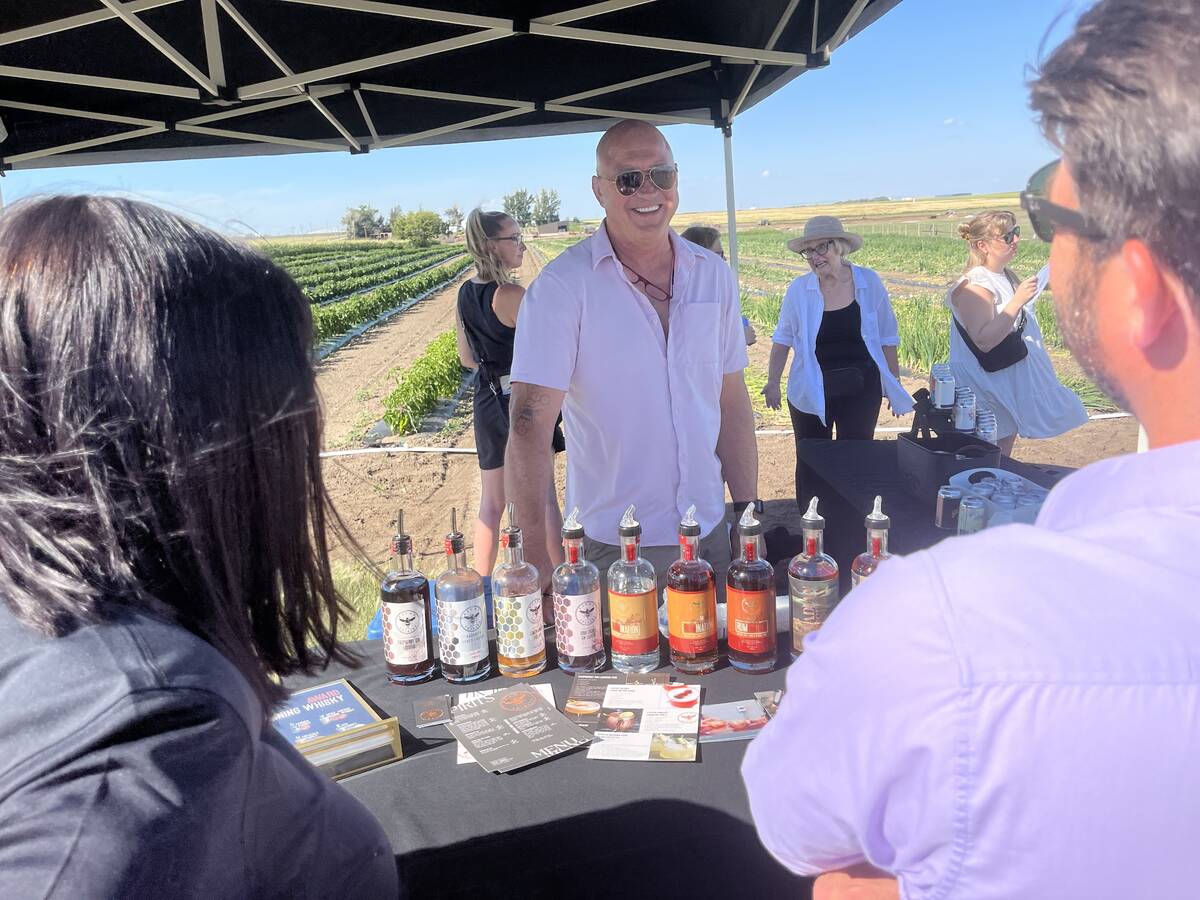ESTON, Sask. – Heidi Harpestad of Ridgeley, Sask., holds up a sample of malting barley from her farm and said she wants to understand germination and chitting.
Although she prefers working with cows, she needs to understand the grain business and especially how the malting quality of their barley is based on whether it sprouts well, or its chitting rate.
She was one of about 100 farm women in Saskatchewan who have sharpened their grain marketing skills in the past three years.
They enrolled in a pilot program offered by the Canadian Wheat Board, which has offered eight courses in Saskatchewan since 2003. The most recent one was in Eston last week.
Read Also

From farmer to award-winning distiller
Pivot Spirits showcases transition from farmer to distiller with provincial award-winning results in Alberta for Lars Hirch
Fay Fairs, who farms with her husband near Eston, said she took the course because they are looking at the new options and “I don’t understand them.” She expects to be seeding durum and hard wheat by the end of April.
Eileen Turner, who farms near Plato, Sask., said she wanted to become more informed about contracts and the deductions on the cash tickets. She came from Regina six years ago to join her husband on the farm where they grow durum, wheat, canaryseed and lentils.
The courses were first offered to immigrants, women and young farmers who wanted to learn more, said Patrick Weatherald, the CWB farm business representative from Regina. However, evaluations from the women who attended the first two meetings led the CWB to develop courses only for women.
“Most women feel more comfortable in a room full of women,” Weatherald said the participants told him.
Many of the women taking the course already do the bookkeeping and are active on their farms. Their husbands have suggested or supported them attending the course. He also said the women are all ages, from their 20s to 50s.
“But these are all people committed to farming and they have a vision they’ll be farming in five, 10 or 20 years. They’re trying to get any edge to succeed,” he said.
The two-day courses are limited to a registration of 10 to 15 women and have been held in Melville, Moose Jaw, Tisdale, Saskatoon and Weyburn.
They are advertised by the Saskatchewan Institute of Applied Science and Technology and held in conjunction with grain handling facilities with various companies and agencies.
Weatherald, who teaches the first day of the course, said it consists of an overview of the CWB, producer payment options, the importance of using contracts and grain ticket deductions.
He said the second day is taught by Canadian Grain Commission employees who outline the commission’s work with grain standards and producers’ rights and responsibilities in grading. It winds up with the women grading grain, including samples taken from their own farms if they wish.
Weatherald said the CWB hasn’t offered the course in any other province because it is still checking demand. He also said if a group of women in a certain area wanted to hold a course, they could approach the CWB or SIAST.
“The course is in its infancy. We’re looking at whether it should have another module about the open market, futures trading and hedging.”
Donna Welke, the CGC’s assistant commissioner in Regina, said the course is responding to the increasing role of the spouse because it now takes two to run the farm.














